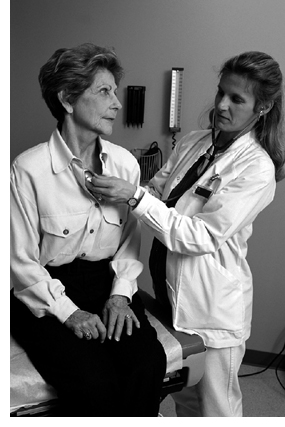
Citizen
Consumer
Report
David G. McDonough
Spring 2005

|
Senior Citizen Consumer Report |
|
from Assemblyman David G. McDonough Spring 2005 |
|
|
||||||||||||
| For Your Health... |
| Save Money with EPIC |
|
To help senior citizens pay for their prescription drugs, New York state established the Elderly Pharmaceutical Insurance Coverage (EPIC) Program that, since its inception, has helped over 340,000 enrolled members save, on average, over 80 percent of the cost of their medicines. |
Eligibility requirements:
For an application form or more program information, call EPIC’s toll-free hot line at (800) 332-3742, visit www.health.state.ny.us/nysdoh/epic/faq.htm, or inquire at your local pharmacy, doctor’s office or office for the aging. |
Medicare’s New Benefits
For 2005 New preventive services to be covered:
These benefits add to the preventive services already covered by Medicare, such as cancer screenings, bone mass measurements and vaccinations. In 2006 Prescription drug plans will be available to Medicare recipients, while insurance companies and other private groups will work with Medicare to offer drug plans and negotiate drug price discounts. Medicare prescription drug plans will resemble other insurance plans by providing insurance coverage for prescription drugs. By joining a Medicare plan, recipients will pay a monthly premium of about $35 and a share of their prescription costs. Prices will vary depending on the plan chosen. Prescription drugs to be covered may vary according to the drug plan chosen, the amount recipients must pay and the pharmacies they patronize. When joining a drug plan, it’s important to choose one that meets the individual’s prescription drug needs. The drug plan coverage takes effect the first day of the month following the month the recipient joined. Medicare recipients should consider joining a plan in 2006 regardless of the amount of prescription drugs they now use. Individuals who don’t register with a plan by May 15, 2006, and don’t have a plan that covers as much or more than a Medicare prescription drug plan, will have to pay more each month to join. More information about Medicare prescription drug plans is available by calling toll-free (800) MEDICARE (633-4227) or by visiting the Web site www.medicare.gov. |
|
|
|
|||||||
| PROTECT YOURSELF FROM BEING SCAMMED |
|
The story is all too familiar: the unsuspecting homeowner pays a con man for home-improvement work that never gets done, or the trusting individual provides a credit card number to a telephone scam artist. While anyone can be a victim of fraud, senior citizens are especially vulnerable. However, there are steps you can take to safeguard against being scammed.
For more information on how to protect yourself from scam artists, call the toll-free number of the New York State Consumer Protection Board at (800) 697-1220, or visit the agency’s Web site at www.consumer.state.ny.us. |
| Protect Yourself from Identity Theft |
|
Identity Theft
Identity theft occurs when a criminal steals personal information or items, such as a credit card, Social Security or driver license number, ATM personal identification number (PIN), or telephone calling card, and uses the data to assume another person’s identity. Types of Identity Theft
|
|
||||||
|
District Office: 3000 Hempstead Turnpike • Suite 110 • Levittown, NY 11756 • (516) 731-8830 mcdonod@assembly.state.ny.us Albany Office: 533 Legislative Office Building • Albany, NY 12248 • (518) 455-4633 |
|
Back |